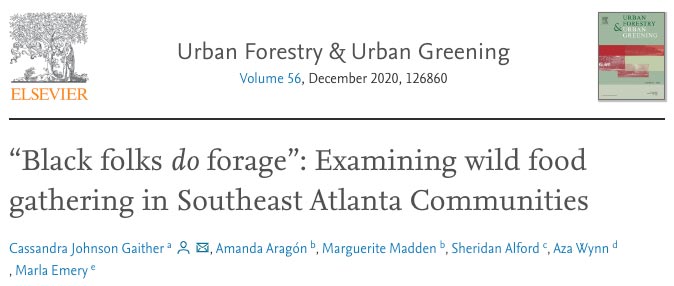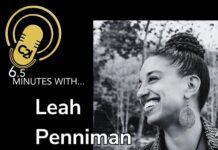Abstract from Urban Forestry & Urban Greening:
Concerns about food sovereignty in western nations have increased in recent years, as incidents of food-borne pathogens are highlighted in the popular press, and calls for locally-sourced food have increased. Wild food foraging has emerged as a response by some segments of the population under the twin rubrics of food sovereignty and food justice. However, virtually all studies looking at these activities focus outside of the U.S. South and contain little information on African American involvement. We investigate both perceptions and participation in urban foraging by African Americans in Atlanta’s Browns Mill-Lakewood community and smaller sections of adjacent communities, with attention to the role of collective efficacy as a predictor of foraging and foraging as a precursor of collective efficacy. A modified proportionate, census guided, systematic random sampling method was used to administer a door-to-door, household survey in the study area to gather these data. Twenty percent of the nearly all African American sample indicated that they had foraged in their neighborhood in the past five years, but not being aware of wild food locations was the most-cited barrier to participating. Results from ordered, logistic regression models also indicated that women were significantly less likely than men to forage, other factors equal; and those who foraged were more likely to have higher collective efficacy scores. Recommendations are made for increasing awareness of wild food locations in southeast Atlanta communities. This involves partnering with a local foraging non-profit group, Concrete Jungle.








